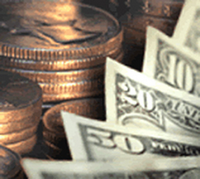Last week, the United Nations Conference on Trade and Development (UNCTAD) issued a report calling for sweeping changes in the international financial and monetary order. Arguing for a reduced role for the dollar, the report advocated for a global reserve bank with the power to issue its own currency, to monitor its members' national exchange rates, and to prop up or push down their currencies. In other words, UNCTAD is making the case for a global central bank.
The U.N. is not alone in calling for such a move. Since the eruption of the global financial crisis last fall and the accompanying loss of confidence in the U.S. economy, Russia and China have each called for the creation of a global currency in order to facilitate a transition away from the dollar as the world's primary reserve currency.
Setting aside the economics of the debate, what is the political feasibility of these proposals? History may help to answer this question.

